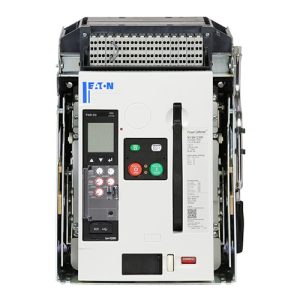Insulated Case Breakers – also known as insulated case circuit breakers (ICCBs) – are circuit breakers that are designed to protect electrical systems by opening and closing the circuit automatically and manually. This prevents events like overloads, short-circuiting, and ground faults from doing any damage to the system as a whole.
According to the IEEE 1015 practice, an ICCB is “assembled as an integral unit in a supporting and enclosing housing of insulating material and with a stored energy mechanism.”

There are many types of circuit breakers out there, but ICCBs may be the better choice for you depending on your situation. If any – or all of these – apply to you, then it is worth your time to consider purchasing an ICCB.
Price is not an issue.
One of the biggest drawbacks to an ICCB is that it is usually costlier than some other types of circuit breakers available on the market. They are not suited for those who have a limited budget. ICCBs are usually considered by those who have the funds to afford them or work in a building where no other kind of circuit breaker would be suitable.
You need high short time withstand capabilities AND high interrupting ratings.
When you look at circuit breakers that are being sold in the marketplace, you will usually find that they are good at doing one of the above things. Low voltage air circuit breakers have high short time withstand capabilities while molded case circuit breakers have high interrupting ratings. Unfortunately, neither of them have both. That is where ICCBs come into the picture.
High Frequency and/or a possibility of events that could damage the electrical system exist.
As previously mentioned, events like ground faults and electrical overloads could damage the electrical system. Even if a circuit breaker can protect the system from these events, the events can happen enough to the point where they put wear and tear on the breaker. ICCBs are built to resist the powerful mechanical forces of these events and can last a long time in the field. They are often seen as a last defense when molded case circuit breakers are unable to do the job.
You have greater power needs.
A molded case circuit breaker usually fits power needs up to 1200 amperes. However, sometimes you need a greater ampere capacity for your working situation. ICCBs are useful in applications up to 5000 amperes and are useful for buildings that need to use high power electricity on a frequent basis without compromising electrical safety.
You need to manually disconnect power to the circuit.
Sometimes you find yourself in a situation where this kind of action needs to be taken. You will not be able to do this with any other kind of circuit breaker.
You prefer a smaller footprint.
You may have a preference for a circuit breaker that does not take up so much physical space. ICCBs are known for being small and non-intrusive in size.
Greater circuitry is a priority for you.
ICCBs have far more circuity per switchgear when compared with low voltage air circuit breakers. This provides more channels for electricity to flow through when one path is no longer working properly.
You like having accessories that can be installed onto your circuit breaker.
There are several accessories that are available for installation into an ICCB, depending on your needs. You can install an external ground fault sensor, a remote operator that allows you control the breaker’s operator handle at a distance without the risk of flash burns, and much more. The only drawback to this is that the accessory should be listed for the specific breaker that it is being attached to.
Those are some of the many cases in which an ICCB is right for you. As always, use a reliable source for purchasing an ICCB. You are making an investment into the electrical safety of your building’s occupants and of yourself.
